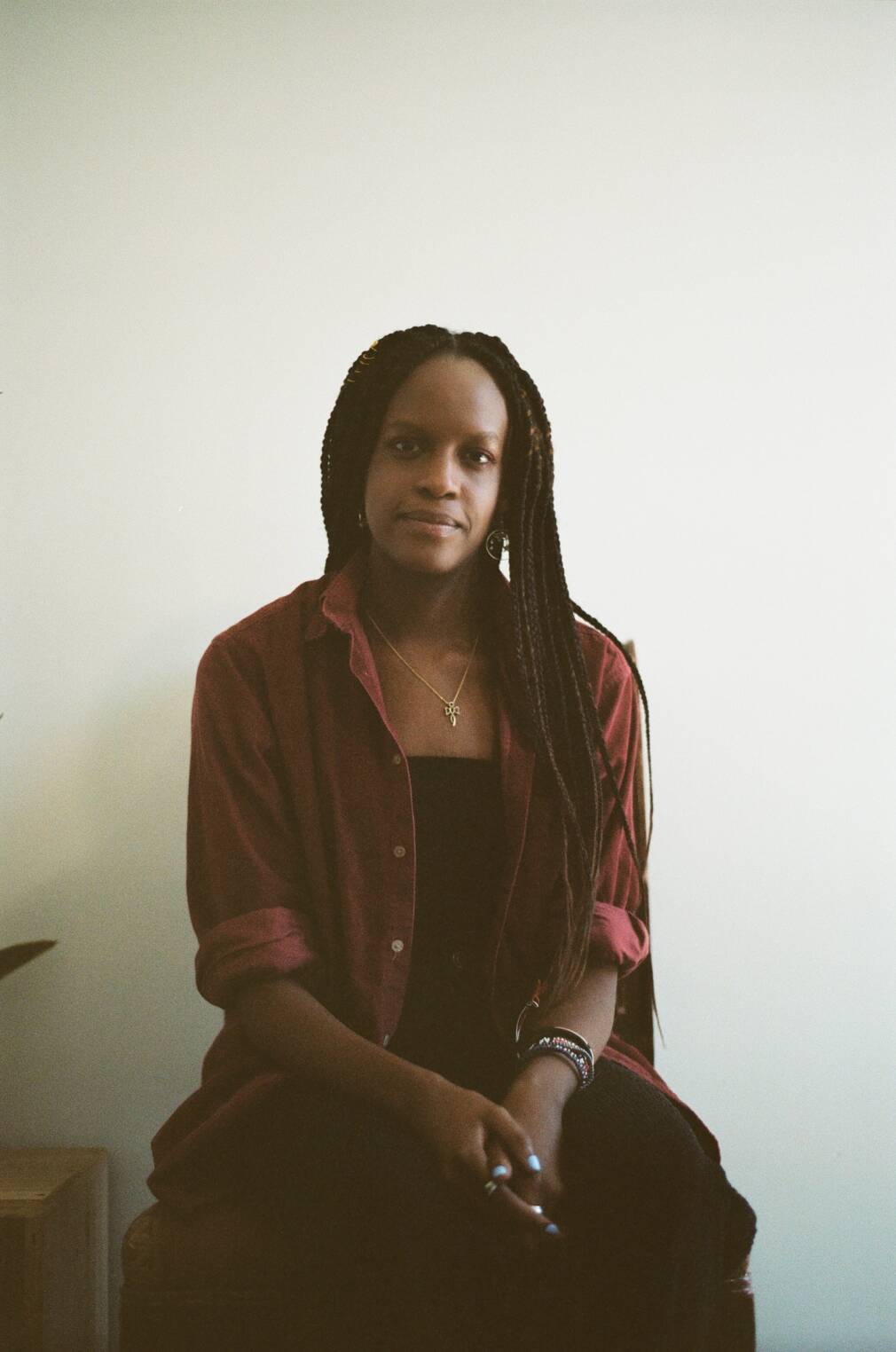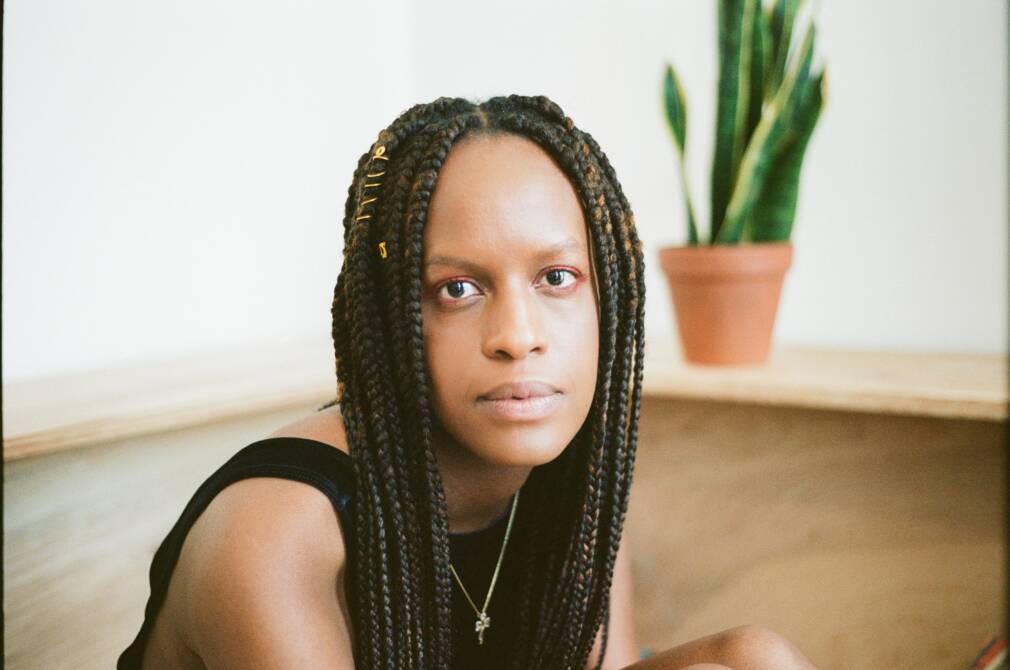Kariũki shares how music has always been a way for her to process that which she goes through, joking that the more albums she releases, the more it feels like she’s just airing her personal life for everyone to hear. What she does is beautifully capture and auditorily express elements and experiences of the human condition which allow her listeners to be held. Many who suffer with long covid and other disabilities may listen to Kariũki’s work and feel understood.
FEELING BODY explores many different themes surrounding illness as Kariũki both reflects on how it felt in the moment as well as how it feels to look back on. “Each track is a very focused and specific element of the experience”. The first track on the album is titled “Subira”, which means “patience” in Swahili and the last track is titled “Nazama”, which means “I sink”. The significance of the first and last track mirroring each other linguistically is inspired by Swahili Methali (proverbs) and bookends the story that Kariũki tells, like a prologue and an epilogue. Kariũki often incorporates both Swahili and her tribal language Kikuyu into her music and is actively engaging with and learning more about them throughout her artistic practice. “Language is something I think about all the time. I talk about it all the time. I think it’s a huge lens into the world and to the way that people understood themselves in the past and the way people understand themselves today. So it’s always been important for me to engage that part of myself and my heritage”.
Regardless, Kariũki continues to explore her languages and her culture in ways that are true and authentic to her experience as a Kenyan person. She also plays around with the accessibility of her music and thinks about who will be able to understand her based on which language(s) she’s using. “So I think there’s also an intentionality of showing that we can have these universal experiences that are also expressed in other languages and in really specific ways. I think I like having this balance in my music that it’s challenging on multiple levels to the people who are listening to it”.
Kariũki’s musical practice is inherently linked to her identity as an African. “I ground my experimentation in African thought, which involves a lot of looking back to African creators of the past and seeing how they experimented with things”. In looking to the past for inspiration, she also gains a deeper understanding of how her work sits within the frameworks of that which came before. “How did we create new forms of work and how can my work also be contextualised within that? I want to be the person providing the definition of how to contextualise my work”. Kariũki shares the importance of being recognised as an African artist who appreciates and utilises Western musical practices as opposed to the other way around. “This is not to reject that I have Western influences, of course, it’s just to reroute the way that we’re often assumed to start from a Western position”. As inspired by her both her classical and cultural upbringing in Kenya and her travels since, for study, work and performance, Kariũki is influenced by a range of both Western and African practitioners, from Gustav Mahler, Maurice Ravel and Jean Sibelius to Francis Bebey, Halim El Dahab and Ngūgī wa Thiong’o.

Along with her ever growing collection of, and experimentation with, kalimbas, Kariũki often finds her musical exploration to be influenced by the piano. “In many ways, the piano is always home for me. It’s where I feel most myself and my fingers just know what to do.” When it comes to her philosophy and approach to music, she finds herself drawing from her experiences in church. “In the African church, everyone is a music maker.” The cultural practice of music is an essential part of church as well as weddings and celebrations in Kenyan culture. Everyone is encouraged to perform and join in the collective musical creation. Inspired by this, Kariũki will use recordings of her mother and grandmother’s voices, for example. “I think that to me feels like a literal translation of this idea that everyone is a music maker. There’s not this separation between the performer and the audience. I think that was a very western development and westernised idea of who qualifies as a musician.”
Embedding field recordings into her music, Kariũki considers the sounds of nature and the world to be just as musical as those that instruments make. “I think there’s a style of field recording in music in which you can take out the recording and not change the piece so much but I want my records to be so that the field recording is just as important a piece as how we understand instrumentation to be.” Having once simply identified as a composer, Kariũki has expanded her identity to include ‘sound artist’, as she remains steadfast in her conviction that any sound is music. “I make work with sound and it doesn’t have to be in a musical way. I don’t have to be using, you know, instruments. I don’t have to be singing. The mere act of me speaking right now is sound that I could use to make music”.
Having made a name for herself in the African music scene, Kariũki has also lived and performed in many cities throughout her studies in her career as a musician. Though Nairobi is home, it’s difficult finding purposefully created spaces that facilitate musical and cultural expression. “In African cities this is kind of the biggest barrier, a physical space in order to gather, to meet, to exchange ideas, to perform. Space is something that we don’t have so much of when it comes to the arts.” As she continues her journey and works on her upcoming releases, Kariũki continues to ground herself in her language and her culture, always making sure that she’s never too far away from home.
Follow Kariũki on Instagram @nkariuki_ to keep up with her upcoming performances and releases.



